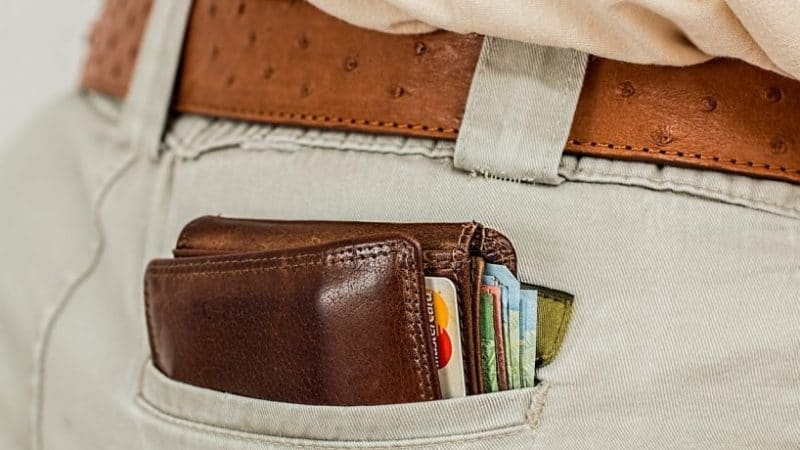
The question ‘How much money should you bet per game?’ is a common one for people new to sports betting.
The answer is that there really isn’t a definitive answer. Everyone has different mentalities, different resources and different comfort levels, so what’s the right bet size for someone else is likely not the right bet size for you.
Here are five questions to ask yourself before determining how much money should you bet per game.
1. What can you afford to lose?
This is the most important question you need to ask yourself when determining how much money should you bet per game.
Millions of people bet on sports, and the vast majority of them lose money in the long run. This doesn’t mean you’re going to lose all your money as well, but you at least need to consider that possibility. Even if you’re really good at picking more winners than losers, there’s always risk and there are never any guarantees.
For that reason, you should establish a bankroll (an amount of money you could afford to lose without it ruining your life) and then size your bets based on that. A rule of thumb for most professional sports bettors is to risk no more than 1-2% of their bankroll on any bet.
So, if you could lose $1,000 betting on sports and still wouldn’t have trouble paying your mortgage or putting food on the table, you’d be fine betting $20 or more per game. If losing that amount of money would make your life uncomfortable, you need to risk less.
2. How good are you at picking winners?
This is another critical factor when you decide how much money should you bet per game.
To break even in sports betting, you need to win 52.38% of your bets against the spread (assuming standard -110 odds).
If you can pick winners against the spread 53% of the time or more, you could potentially earn a lot of money and it makes sense to bet more per game. If you can’t, however, you will almost certainly lose money longterm and you should keep your wagers small in order to avoid losing significant amounts.
Whether you’re new to sports betting or have done it for years, it’s smart to track all your wagers on a spread sheet. That way, you can see what your winning percentage is, which sports you are best in, what types of bets you are good at (maybe you’re good at spreads but bad at Over/Under), etc.
If you’re just starting out in sports betting and aren’t sure how good you are at picking winners, we suggest making $1 bets and tracking your success rate. Once you can see if you’re good at picking winners or not (give yourself a few hundred bets, since small sample sizes can be misleading), you can decide how much to increase your bet amount per game.
3. What is your goal in sports betting?

There are two main reasons to bet on sports: to be entertained and to make money.
It’s also possible to bet on sports for both reasons. But if you’re honest with yourself, one of those reasons is probably a bigger motivator why you bet on sports.
If your biggest motivation for betting sports is to be entertained, you’re better off keeping your bets small. You don’t want to lose a significant amount of money just to enjoy the games more, and losing a lot of money can suck the enjoyment out of things pretty quickly anyway.
If you are more focused on making money, however, you’ll need to bet significant amounts in order to see a significant profit. For example, if you were to pick 55% winners against the spread at -110 odds and made 1,000 bets a year (approximately 3 per day), you’d make $5,500 if you were risking $100 per bet.
If you wanted to make $55,000 instead of $5,500, you’d now have to risk $1,000 per wager. (And you’d need a bankroll of at least $50,000. Betting sports with the intent to make lots of money isn’t for the faint of heart.)
4. How disciplined are you?
Do you feel an urge to bet any game that’s on TV, or are you able to limit yourself to only betting when you think you have an advantage on the odds?
If you can’t resist betting on things like the Super Bowl coin toss, you should keep your bets small. You’ll be playing at a high volume and could get yourself into a lot of trouble quickly if you’re betting big on everything.
However, if you have the self control to pass on bets you don’t think pay good enough odds and only make wagers when you feel the odds are in your favour, larger bet sizes shouldn’t be an issue for you.
Discipline is also required in order to adhere to a bankroll management system. Can you tolerate an 0-3 Sunday in the NFL, go to bed and start again tomorrow, or will you need to bet the Sunday Night Football game at 3 times your normal amount in order to try to ‘break even’ for the day?
Your answer to that question should help you determine how much money should you bet per game.
5. What amount will you ‘feel’?
Part of the rush of sports betting (or gambling in general) is knowing that you’ll have some tangible gain or loss based on the result.
Online poker players might go all-in on every hand if they’re playing with pretend chips. Put some real money in their account, however, and they’ll play a lot differently.
The same goes for sports betting. Whether you’re going for entertainment or to make money, your bet size should be an amount that you would be happy winning and an amount that you don’t really want to lose.
Otherwise, you won’t get that heart-pounding adrenalin rush when it’s fourth down and the game is on the line. You also won’t have much incentive to stay disciplined with your bets, since you don’t really ‘feel’ the wins and losses anyway.
Just make sure that you don’t feel it too much.
If you’re waking up in the middle of the night worried about how much money you lost yesterday, or if sports betting isn’t fun anymore, you need to drop the amount of money you’re betting per game – or stop altogether.

